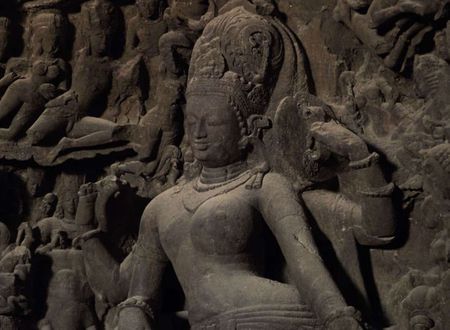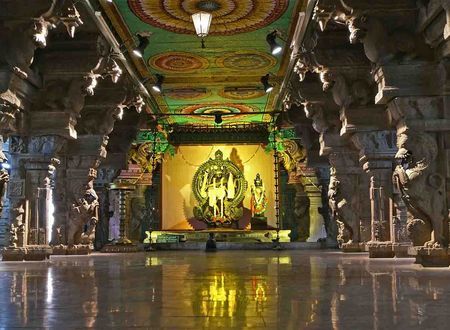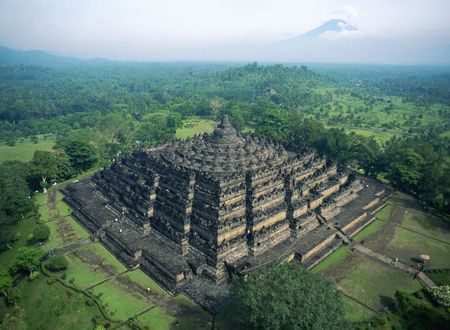Part 1 of the article is here – The Need for a Guru
Incaranations/avatars are self-effulgent, and when we come into their company we realize that. But apart from them, we also get helped by teachers who are comparatively lesser, and because we may not have the intuition to ascertain properly, we should have certain conditions for the teacher to satisfy, as there are for aspirants.
Qualities of a Guru
These qualifications are (v33)
1. Spirit of Scripture – The Guru knows the spirit of the scriptures. The whole world reads Bible, Vedas, and Kuran, but they are only words, syntax, etymology, and the dry bone of religion. The teacher who deals too much with words and allows the mind to be carried away by the force of words loses the spirit. It is the knowledge of the spirit of the scriptures alone that constitutes the true religious teacher.
It is said – शब्दजालं महारण्यं चित्तभ्रमणकारणम् (v60)। — “The network of words is a big forest; it is the cause of a curious wandering of the mind. Those who employ such methods to impart religion to others are only desirous to show off their learning, so that the world may praise them as great scholars.
Bhagavan Ramakrishna used to tell a story of some men who went into a mango orchard and busied themselves in counting the leaves, the twigs, and the branches, examining their color, comparing their size, and noting down everything most carefully, and then got up a learned discussion on each of these topics, which were undoubtedly highly interesting to them. But one of them, more sensible than the others, did not care for all these things. and instead thereof, began to eat the mango fruit. And was he not wise? So leave this counting of leaves and twigs and note-taking to others.
2. Purity – The question is often asked, “Why should we look into the character and personality of a teacher? We have only to judge what he says, and take that up.” This is not right. If a man wants to teach me something of dynamics, or chemistry, or any other physical science, he may be anything he likes, because what the physical sciences require is merely intellectual equipment; but in the spiritual sciences, it is impossible from first to last that there can be any spiritual light in the soul that is impure. What religion can an impure man teach? The sine qua non of acquiring spiritual truth for one’s self or for imparting it to others is the purity of heart and soul.
A vision of God or a glimpse of the beyond never comes until the soul is pure. Hence with the teacher of religion, we must see first what he is, and then what he says. He must be perfectly pure, and then alone comes the value of his words, because he is only then the true “transmitter”. What can he transmit if he has no spiritual power in himself?
There must be a worthy vibration of spirituality in the mind of the teacher, so that it may be sympathetically conveyed to the mind of the taught. The function of the teacher is indeed an affair of the transference of something and not one of mere stimulation of the existing intellectual or other faculties in the taught.
3. Selfless & unbounded compassion – The teacher must not teach with any ulterior selfish motive — for money, name, or fame; his work must be simply out of love, out of pure love for mankind at large. The only medium through which spiritual force can be transmitted is love. Any selfish motive, such as the desire for gain or for name, will immediately destroy this conveying median.
God is love, and only he who has known God as love can be a teacher of godliness and God to man. Such a Guru is also a boundless reservoir of mercy that knows no reason and is a friend to all.
Once you find such a Guru, worshipping the Guru with devotion, and approaching him with humility, and complete faith, an aspirant should ask him what he wants to know on the path. (v34)
Qualifications of an aspirant
The conditions necessary for the seeker are
1. Purity –
No impure soul can be really religious. Purity in thought, speech, and act is absolutely necessary for anyone to be religious. Further, Adi Shankaracharya/Advaitic scriptures mentions – Sadhana Chatushtaya, or four fold discipline , needed for an aspirant, which is mentioned below (v17,18)
2. Real thirst for knowledge or Mumukshavata, along with persverance
We all get whatever we want, and None of us can get anything other than what we fix our hearts upon. To pant for religion truly is a very difficult thing, not at all so easy as we generally imagine. Hearing religious talks or reading religious books is no proof yet of a real want felt in the heart; there must be a continuous struggle, a constant fight, an unremitting grappling with our lower nature, till the higher want is actually felt and the victory is achieved.
It is not a question of one or two days, of years, or of lives; the struggle may have to go on for hundreds of lifetimes. Success sometimes may come immediately, but we must be ready to wait patiently even for what may look like an infinite length of time. The student who sets out with such a spirit of perseverance will surely find success and realization at last.
3. Viveka/Discernment – Discernment between what is transitory and what is permanent. Definition of truth – Which lasts in the Past, Present & future. We are clinging to things that can’t be clung to?
4. Vairagya/Detached – Action without the enjoyment of fruits What we are today – in terms of our mind, and body is a result of what we have done in the past. Thus, what we do now, can make our future.
If Viveka is the mother, then Vairagya is the child. Vairagya is the desire to give up the transitory nature of enjoyment. (you develop a repulsion to it)
5. Shat Sampati – the six treasures
a. Shama – shama means calmness of the mind, and it is the result of Vairagya. Once you are detached, you can remain calm in many conditions of your mind.
b. Dama – Dama means keeping the body and the senses under control.
c. Uparati – Neutralise likes and dislikes
d. TitikShA or Forbearance – Remain neutral (stay alike or tolerate) in the pros and cons of life.
e. Shraddha or Faith– Unwavering faith in yourself, the sacred scriptures or shAstra, God, and Guru.
f. SamAdhAna – Single-pointed concentration. Or in other words, be content with Surrender to God or self or fix your mind on Brahman.
When a seeker with the above qualities goes to the Guru with complete faith, devotion, and surrender, listens to the knowledge of Self/Brahman in the scriptures, and contemplates it, they are instantly liberated. You would notice, that most of the time we are spending is in preparation of the field, i.e. cultivating these virtues and self-transforming ourselves. Once that happens liberation comes in an instant.
This life is meant to reflect the light of consciousness. We should be aware always of how rare this human body is, and if we have the desire for liberation, along with a realized Guru – that is extremely, extremely rare. If you are on OS.me, and reading this, chances are you are already in that category. So please don’t lose your momentum in making progress, and keep walking the path.
It is the Viveka /Discernment which starts the journey of liberation and causes us to feel the vacuum in our hearts and a desire to go to our abode. And this Viveka thus is named the crown jewel by Adi Shankaracharya, who titled his book – Viveka-chudamani.
What Viveka means in our context? To distinguish between the temporary and permanent, and seeking permanent Ishwara/Brahman. Not living for the Body, but for the Soul.
References –
- Bhakti Yoga – Qualifications of the Aspirant and the Teacher – Complete Works of Swami Vivekananda – Vol 3.
- Vivekacudamani – Sri Sanakracharya’s – Translated by Swami Madhavananda.









Comments & Discussion
18 COMMENTS
Please login to read members' comments and participate in the discussion.